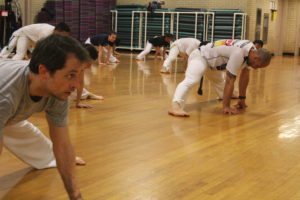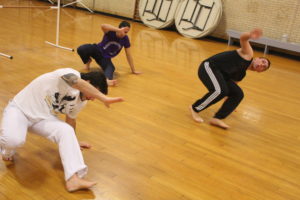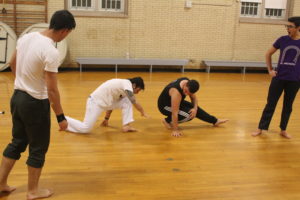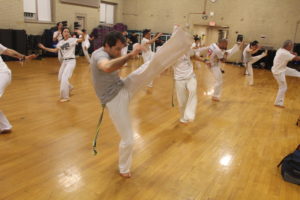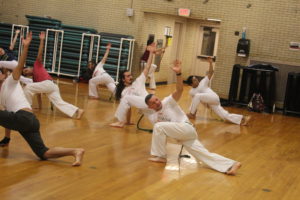It’s hard to train in pain.
Athletes do it all the time. Toughness on the field, off the field, in the gym there’s merit to grit, but a lot of times it worsens injuries. Yoga instructors preach listening to your body.
Capoeirista’s should do the same.
I get it if a muscle cramps, or it feels overworked, and to want to skip out on a training sessions, but that’s not a good excuse to skip training. Capoeira is full of things to work on from the dances, music, songs, the language (Portuguese), and the rich, complex history of the art. It’s not the easiest to find, but it’s doable (thank you internet.)
I remember one time at Rutgers, a friend of mine got hurt.
His knee popped during one of the exercises, and he was on crutches for weeks. My roommate and I felt terrible, and we wanted to do something special. We talked to the rest of the students in the class and raised some funds. We went online, and checked out a few sources.
The next week we surprised him with a berimbau.
He got to work on it during the practices. It didn’t force him to stay at home, and he could do more than just watch. He continued to be part of the class. He actually got really good.
It was one of the better berimbau players we had in our group at the time.
Injury doesn’t stop training, but redirect it. Let it shift the focus on another aspect of the multi-disciplined martial art. There’s always something to work on.
Get to it.

